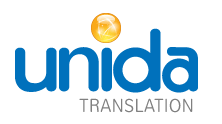The vast majority of hospitals are administered by organizations exempt from federal income tax under Section 501(c)(3) of the Internal Revenue Code. Obtaining and maintaining 501(c)(3) tax-exempt status, however, is not a simple or easy task. The federal government does not willingly surrender its tax collections, and therefore imposes strict requirements on organizations seeking 501(c)(3) tax-exempt treatment.
For hospital organizations to maintain their Section 501(c)(3) tax-exempt status, they have to meet their own set of special criteria, including establishing a written financial assistance policy (FAP) and written emergency medical care policy. According to the IRS’s website, a FAP “must specify the eligibility criteria that an individual must satisfy,” it “must specify all financial assistance available, and it “must also specify the method the hospital facility uses to determine [billed amounts].”
The FAP comes with its own set of publicity requirements. Most importantly, it must be “widely publicized” in the community. This includes making the FAP available in multiple languages. The IRS’s website sets forth the standards for requiring a translation of the FAP:
“To widely publicize its FAP, a hospital facility must accommodate all significant populations that have limited English proficiency (LEP) by translating the FAP documents into the primary language spoken by these populations. It must make the FAP documents available in the language spoken by each LEP language group that constitutes the lesser of 1,000 individuals or 5 percent of the community served by the hospital facility or the population likely to be affected or encountered by the hospital facility.”
This requirement is strict. The federally mandated FAP must be translated into any language that has at least a thousand speakers with limited English language proficiency. In some communities, this provision could require translation into at least a dozen languages. Any translation service tackling this project must have access to a wide range of languages.
A FAP can present serious pitfalls to the unwary translator. First, like all government-mandated legal documents addressing payments for medical services, it can contain highly technical legal and medical terminology, which can sound clunky and confusing when translated. Also, the IRS requires a “plain language” summary, which has to be easily understood by the average reader not just in English, but in any other language for which translation is required. A readable and accessible translation, then, is as much a matter of art as science, and requires considerable skill.
A federally-mandated translation of a hospital’s FAP requires a translation service with wide language accessibility and highly-developed translation skills. At Unida, we provide translation services in more than 125 languages and our translation method adds an additional tier of review to ensure translations are not only accurate, but readable as well.
Unida Translation provides outstanding translation services for documents, remotely and in person. What makes Unida Translation different and the best choice for all translation needs is that our translators and interpreters are certified by a recognized translator and interpreter association. Our company is also licensed, insured, Disadvantaged Business Enterprise (DBE) certified, and local in Northwest Indiana.

